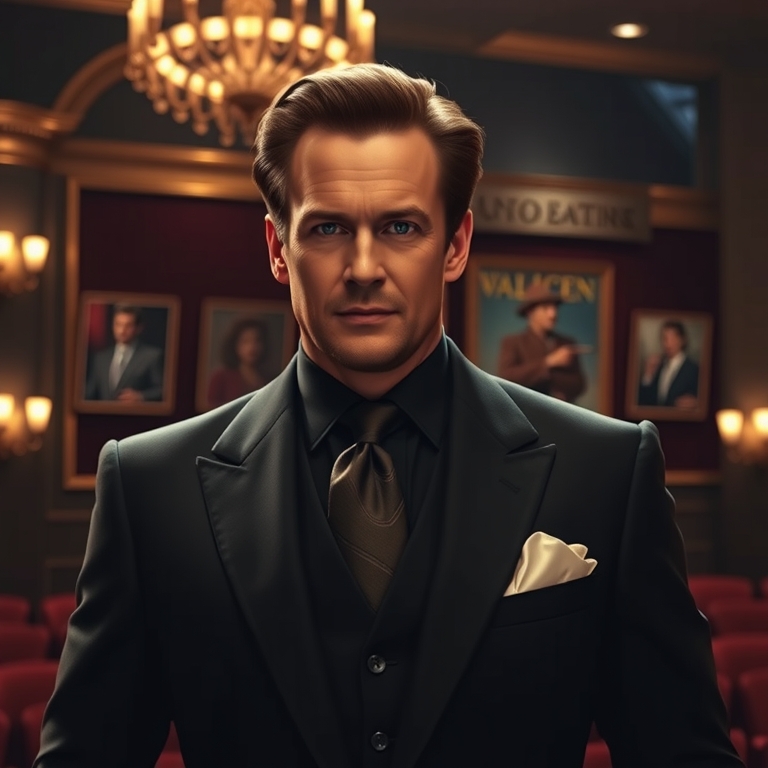Val Kilmer’s career is a testament to the transformative power of cinema and the boundless potential of talent when combined with dedication and versatility. Over the years, Kilmer has solidified his reputation as one of Hollywood’s most versatile and captivating actors, a title earned through a series of performances that showcase not only his range but his commitment to the craft. His journey through the film industry reads like an adventurous script, filled with dramatic highs and challenging lows, yet his resilience and talent have kept him firmly in the public eye.
Kilmer’s journey began in the world of theater, where he honed his skills at the prestigious Juilliard School. This foundation in classical training provided him with a deep understanding of character development and a strong appreciation for the nuances of performance. His theatrical roots are evident in his ability to embody a wide array of characters, each portrayed with meticulous detail and emotional depth. This versatility has allowed Kilmer to navigate seamlessly between genres, from action-packed blockbusters to nuanced biographical dramas, each time bringing a fresh perspective and a palpable intensity to his roles.
One of Kilmer’s most memorable performances came early in his career with the role of Iceman in the 1986 blockbuster “Top Gun.” His portrayal of the cool, confident fighter pilot not only showcased his charisma but also set the stage for a career that would defy easy categorization. Kilmer’s ability to stand out in an ensemble cast of rising stars spoke volumes about his screen presence and hinted at the depth of talent he would continue to reveal in future projects.
Kilmer’s knack for transformation truly came to the forefront with his portrayal of Jim Morrison in Oliver Stone’s “The Doors.” He immersed himself in the role, capturing the enigmatic spirit and tortured genius of the iconic rock star with uncanny precision. His performance was so convincing that it blurred the lines between actor and character, earning him critical acclaim and solidifying his position as a formidable force in Hollywood. This role was not just a showcase of his acting prowess but also a testament to his dedication, as he famously underwent extensive vocal training to replicate Morrison’s distinctive singing voice.
The 1990s saw Kilmer continue to explore diverse roles, further cementing his reputation as a chameleon-like actor. In “Tombstone,” he delivered a masterful performance as Doc Holliday, infusing the legendary gunslinger with a blend of humor, charm, and pathos that brought a new dimension to the Western genre. His portrayal was both haunting and charismatic, demonstrating his ability to elevate a supporting role to scene-stealing prominence.
Kilmer’s versatility was again on display in Michael Mann’s “Heat,” where he starred alongside industry heavyweights Robert De Niro and Al Pacino. Despite the formidable company, Kilmer held his own, delivering a nuanced performance that contributed significantly to the film’s gripping narrative. His ability to convey complex emotions with subtlety and precision was evident, further establishing him as a consummate actor capable of deep, layered performances.
Throughout his career, Kilmer has been unafraid to take risks, often choosing roles that challenge both himself and the audience. His portrayal of Batman in “Batman Forever” offered a unique interpretation of the iconic character, balancing the duality of Bruce Wayne with the dark allure of the Caped Crusader. While opinions on the film may vary, Kilmer’s commitment to reinventing the superhero archetype was unmistakable, demonstrating his willingness to defy expectations and explore new creative avenues.
In more recent years, Kilmer has faced personal challenges, including a battle with throat cancer that impacted his voice and health. However, true to his resilient spirit, he has navigated these obstacles with grace and determination. His recent roles have continued to captivate audiences, illustrating his enduring appeal and the strength of his artistic vision. Kilmer’s appearance in the “Top Gun” sequel, “Top Gun: Maverick,” was a poignant reminder of his enduring legacy and ability to connect with audiences across generations.
Kilmer’s versatility extends beyond his choice of roles; it is also evident in his approach to the craft. He is known for his meticulous preparation, often immersing himself in extensive research and character development. This dedication is reflected in the authenticity of his performances, each offering a new facet of his talent and a fresh perspective on the characters he portrays. Whether delving into the psyche of a historical figure or embodying a fictional character, Kilmer’s commitment to his craft is unwavering, a trait that has earned him the respect of his peers and the admiration of audiences worldwide.
As Hollywood continues to evolve, Val Kilmer’s career serves as a reminder of the timeless power of versatility and dedication in the performing arts. His ability to adapt, transform, and captivate speaks to a profound understanding of the human condition and an unyielding passion for storytelling. Kilmer’s legacy is not just defined by the roles he has played but by the impact he has made on the industry, inspiring a new generation of actors to embrace the transformative power of their craft.
In an era where typecasting can often limit an actor’s career trajectory, Kilmer stands out as a shining example of how versatility can be a powerful asset. His journey is a testament to the idea that talent, when combined with passion and perseverance, can overcome any obstacle and leave a lasting impression on audiences and fellow artists alike. As he continues to explore new creative endeavors, Val Kilmer remains a captivating figure in Hollywood, a testament to the enduring allure of a truly versatile actor.






